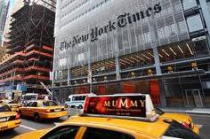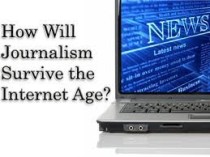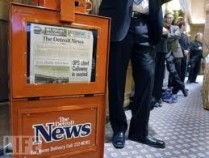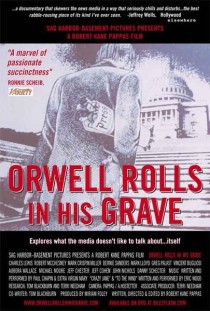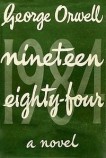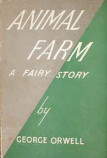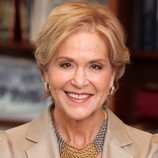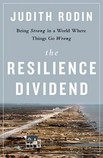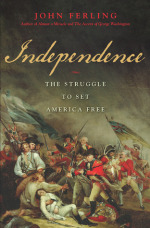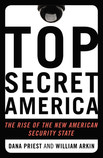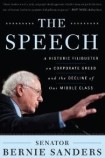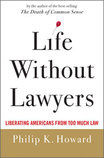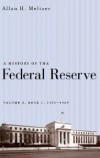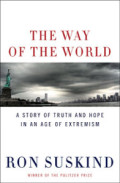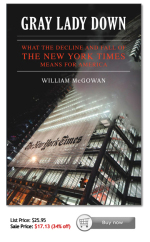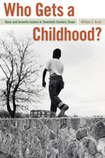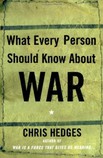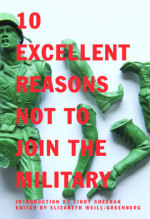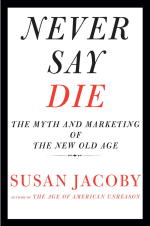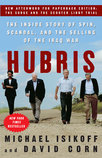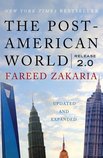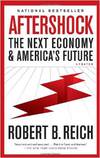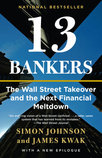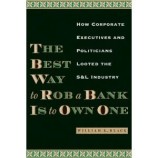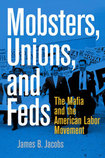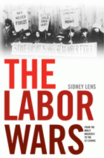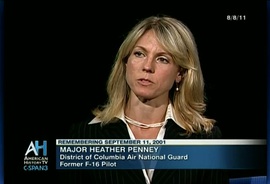News and book reviews
Be prepared for the apparently easy questions when interviewed.
Orwell Rolls in His Grave, official website
Director Robert Kane Pappas’ ORWELL ROLLS IN HIS GRAVE is the consummate critical examination of the Fourth Estate, once the bastion of American democracy. Asking
whether America has entered an Orwellian world of doublespeak where outright lies can pass for the truth, Pappas explores what the media doesn’t like to talk about: itself. Meticulously tracing the
process by which media has distorted and often dismissed actual news events, Pappas presents a riveting and eloquent mix of media professionals and leading intellectual voices on the media.
more
Orwell Rolls in His Grave, Wikipedia
Orwell Rolls in His Grave is a 2003 documentary film written and directed by Robert Kane Pappas. Covered topics include the Telecommunications Act of 1996, concentration
of media ownership, political corruption, Federal Communications Commission (FCC), the controversy over the US presidential election of 2000 (particularly in Florida with Bush v. Gore), and the
October surprise conspiracy theory. The film has previously aired on Free Speech TV, a non-profit TV station based in Denver, Colorado and Link TV. Read more
Nineteen Eighty-Four
George Orwell, Author
Nineteen Eighty-Four (sometimes written 1984) is a 1949 novel that reflects a dystopia by George Orwell about an oligarchical, collectivist society. Life in the Oceanian province of Airstrip One is a
world of perpetual war, pervasive government surveillance, and incessant public mind control. The individual is always subordinated to the state, and it is in part this philosophy which allows the
Party to manipulate and control humanity. In the Ministry of Truth, protagonist Winston Smith is a civil servant responsible for perpetuating the Party's propaganda by revising historical records to
render the Party omniscient and always correct, yet his meagre existence disillusions him to the point of seeking rebellion against Big Brother, eventually leading to his arrest, torture, and
reconversion. Wikipedia
Animal Farm
George Orwell, Author
Animal Farm is a dystopian allegorical novella by George Orwell. Published in England on 17 August 1945, the book reflects events leading up to and during the Stalin era before World War II. Orwell,
a democratic socialist, was a critic of Joseph Stalin and hostile to Moscow-directed Stalinism, especially after his experiences with the NKVD, and what he saw of the results of the influence of
Communist policy ("ceaseless arrests, censored newspapers, prowling hordes of armed police" - "Communism is now a counter-revolutionary force"), during the Spanish Civil War. In a letter to Yvonne
Davet, Orwell described Animal Farm as his novel "contre Stalin". Wikipedia
C-Span2 Book TV
booktv.org
Book TV covers established and upcoming nonfiction authors. Approximately 2,000 authors are featured annually, and
in one year may cover as many as 60,000 titles. Like C-SPAN's weekly coverage of government affairs, the Book TV the production style is "no frills", focusing on panel discussions, book signings and
visits to bookstores. Book TV interviews are characterized by a focus on the author, rather than the host, and an unstructured format allowing the author to guide the discussion.
The Book TV weekend-long programming schedule grew out of the success of C-SPAN's long-running Booknotes series, which since 1989 was the only avenue for coverage of nonfiction books and authors on
the C-SPAN networks. C-SPAN believes that coverage of nonfiction books complements its primary public affairs mission and since Booknotes could only feature 52 books per year, when the network wished
to increase its coverage of nonfiction books, Book TV on C-SPAN2 was the solution.
The inspiration for coverage of nonfiction books on the C-SPAN networks originated with C-SPAN founder Brian Lamb’s 's frustration with the lack of attention that authors receive on television, which
led initially to the creation of the author interview program Booknotes. As Lamb related in a 2003 interview, "It used to drive me absolutely crazy when an author would appear on a talk show and come
and go before I even had a chance to determine if I wanted to read the book. Read more, Wikipedia
Judith Rodin President,
The Rockefeller Foundation
Judith Rodin is president of The Rockefeller Foundation, one of the world’s leading philanthropic organizations. She was previously president of the University of Pennsylvania, and provost of Yale University. Since joining the Foundation in 2005, Dr. Rodin has recalibrated its focus to meet the challenges of the 21st century and today the Foundation supports and shapes innovations to expand opportunity worldwide and build greater resilience by helping people, communities and institutions prepare for, withstand and emerge stronger from acute shocks and chronic stresses. The Foundation accomplishes these goals through work that advances health, revalues ecosystems, secures livelihoods, and transforms cities. Read more
The Resilience Dividend, Judith Rodin, Author
Being Strong in a World Where Things Go Wrong
Our interconnected world is susceptible to sudden and dramatic shocks and stresses: a violent storm, a new strain of virus, an infrastructural failure, a civil disturbance, a cyber-attack, an economic crisis. Building resilience—the ability to bounce back more quickly and effectively—is an urgent social and economic issue, one that communities across the globe must focus on as these disruptions become more and more frequent. Read more
In THE RESILIENCE DIVIDEND, Dr. Judith Rodin, president of The Rockefeller Foundation, uses a range of stories from around the world to show how people, organizations, businesses, communities, and cities have developed resilience in the face of otherwise catastrophic challenges. Read more
The Dictator's Handbook: Why Bad Behavior is Almost Always Good Politics
Bruce Bueno de Mesquita, Co-Author
Alastair Smith, Co-Author
For eighteen years, Bruce Bueno de Mesquita and Alastair Smith have been part of a team revolutionizing the study of politics by turning conventional wisdom on its head.
They start from a single assertion: Leaders do whatever keeps them in power. They don’t care about the "national interest"—or even their subjects—unless they have to.
This clever and accessible book shows that the difference between tyrants and democrats is just a convenient fiction. Governments do not differ in kind but only in the
number of essential supporters, or backs that need scratching. The size of this group determines almost everything about politics: what leaders can get away with, and the quality of life or misery
under them. The picture the authors paint is not pretty. But it just may be the truth, which is a good starting point for anyone seeking to improve human governance. Read more
After Words with Bruce Bueno de Mesquita and Alastair Smith
C-SPAN 2, BookTV
September 27, 2011
The acclaimed NYU professors explain how autocrats and dictators are able to maintain power by doing whatever is necessary to please the coalition that will help
continue their regime. They explore their theory with Associated Press National Security Editor Anne Gearan. Read more
Independence: The Struggle to Set America Free John Ferling, Author
John Ferling’s Official Web Site
No event in American history was more pivotal-or more furiously contested-than Congress's decision to declare independence in July 1776. Even months after American blood
had been shed at Lexington and Concord, many colonists remained loyal to Britain. John Adams, a leader of the revolutionary effort, said bringing the fractious colonies together was like getting
"thirteen clocks to strike at once."
Other books have been written about the Declaration, but no author has traced the political journey from protest to Revolution with the narrative scope and flair of John
Ferling. Independence takes readers from the cobblestones of Philadelphia into the halls of Parliament, where many sympathized with the Americans and furious debate erupted over how to deal with the
rebellion. Independence is not only the story of how freedom was won, but how an empire was lost.
At this remarkable moment in history, high-stakes politics was intertwined with a profound debate about democracy, governance, and justice. John Ferling, drawing on a
lifetime of scholarship, brings this passionate struggle to life as no other historian could. Independence will be hailed as the finest work yet from the author Michael Beschloss calls "a national
resource." Read more
- Review by Chuck Leddy, Boston.com
- Review by Publishers Weekly
- Almost a Miracle: America's War of Independence
- Independence by John Ferling
C-Span: In Depth With John Ferling, July 5, 2009, three hour video interview from George Washington's Mount Vernon Estate, Museum, & Gardens (Susan Swain, host)
Candice Millard, Author website
James A. Garfield was one of the most extraordinary men ever elected president. Born into abject poverty, he rose to become a wunderkind scholar, a Civil War hero, and a
renowned and admired reformist congressman. Nominated for president against his will, he engaged in a fierce battle with the corrupt political establishment. But four months after his inauguration, a
deranged office seeker tracked Garfield down and shot him in the back.
But the shot didn’t kill Garfield. The drama of what happened subsequently is a powerful story of a nation in turmoil. The unhinged assassin’s half-delivered strike
shattered the fragile national mood of a country so recently fractured by civil war, and left the wounded president as the object of a bitter behind-the-scenes struggle for power—over his
administration, over the nation’s future, and, hauntingly, over his medical care. A team of physicians administered shockingly archaic treatments, to disastrous effect. As his condition worsened,
Garfield received help: Alexander Graham Bell, the inventor of the telephone, worked around the clock to invent a new device capable of finding the bullet.
Meticulously researched, epic in scope, and pulsating with an intimate human focus and high-velocity narrative drive, The Destiny of the Republic will stand alongside
The Devil in the White City and The Professor and the Madman as a classic of narrative history.
Top Secret America: The Rise of the New American Security State
Dana Priest, Co-Author
William M. Arkin, Co-Author
The top-secret world that the government created in response to the 9/11 terrorist attacks has become so enormous, so unwieldy, and so secretive that no one knows how
much money it costs, how many people it employs or exactly how many agencies duplicate work being done elsewhere. The result is that the system put in place to keep the United States safe may be
putting us in greater danger. In TOP SECRET AMERICA, award-winning reporters Dana Priest and William Arkin uncover the enormous size, shape, mission, and consequences of this invisible universe of
over 1,300 government facilities in every state in America; nearly 2,000 outside companies used as contractors; and more than 850,000 people granted "Top Secret" security clearance.
A landmark exposé of a new, secret "Fourth Branch" of American government, TOP SECRET AMERICA is a tour de force of investigative reporting-and a book sure to spark
national and international alarm.
The Speech: A Historic Filibuster on Corporate Greed and the Decline of Our Middle Class
US Senator Bernie Sanders, Author
On Friday, December 10, 2010, Vermont Senator Bernie Sanders walked on to the floor of the United States Senate and began speaking. It turned out to be a very long speech, lasting over eight and a
half hours.
And it hit a nerve. Millions followed the speech online until the traffic crashed the Senate server. A huge, positive grassroots response tied up the phones in the senator’s offices in Vermont and
Washington. President Obama reportedly held an impromptu press conference with former President Clinton to deflect media attention away from Sanders’ speech. Editorials and news coverage appeared
throughout the world.
In his speech, Sanders blasted the agreement that President Obama struck with Republicans, which extended the Bush tax cuts for millionaires and billionaires, lowered estate tax rates for the very,
very rich, and set a terrible precedent by establishing a "payroll tax holiday" diverting revenue away from the Social Security Trust Fund, and threatening the fund’s very future.
But the speech was more than a critique of a particular piece of legislation. It was a dissection of the collapse of the American middle class and a well-researched attack on corporate greed and on
public policy which, over the last several decades, has led to a huge growth in millionaires even as the United States has the highest rate of childhood poverty in the industrialized world. It was a
plea for a fundamental change in national priorities, for government policy that reflects the needs of working families, and not just the wealthy and their lobbyists.
Finally, Sanders’ speech—published here in its entirety with a new introduction by the senator—is a call for action. It is a passionate statement informing us that the only people who will save the
middle class of this country is the middle class itself, but only if it is informed, organized, and prepared to take on the enormously powerful special interests dominating Washington.
Senator Bernie Sanders is the longest-serving Independent in the history of the United States Congress. He has represented Vermont in the Senate for four years and in the House for sixteen years. He
served four terms as Mayor of Burlington, Vermont, during which time the city was recognized as one of the most livable cities in America.
Friends of Bernie Sanders
No One Would Listen: A True Financial Thriller
Harry Markopolos, Wikipedia
No One Would Listen is the exclusive story of the Harry Markopolos-lead investigation into Bernie Madoff and his $65 billion Ponzi scheme. While a lot has been written
about Madoff's scam, few actually know how Markopolos and his team-affectionately called "The Fox Hounds" by Markopolos himself, uncovered what Madoff was doing years before this financial disaster
reached its pinnacle. Unfortunately, no one listened, until the damage of the world's largest financial fraud ever was irreversible.
Since that time, Markopolos openly has testified and questioned the enforcement and fraud investigation capabilities of the Securities and Exchange Commission (SEC),
shared a sliver of this page-turning story with 60 Minutes, and become perhaps the world's most visible and insightful whistleblower on fraud and conflicts of interest in financial markets.
Read more
Life Without Lawyers: Liberating Americans from Too Much Law
Philip K. Howard, Author
Philip K. Howard, a lawyer, advises leaders of both parties on legal and regulatory reform. He is chair of Common Good and a contributor to the New York Times and the Wall Street Journal. In his latest prescriptive survey of American law abuse and its consequences, Howard (The Death of Common Sense, The Collapse of the Common Good) sticks to the formula: one ghastly anecdote after another demonstrating how the justice system hinders freedom and confounds Americans who simply want to do the right thing. Either through litigation or the fear of it, Howard argues, we've ceded our everyday decision-making to the lawyers (Howard writes we "might as well give a legal club to the most unreasonable and selfish person in the enterprise") Read more
A First-Rate Madness: Uncovering the Links Between Leadership and Mental Illness
Nassir Ghamei, Author Website
New York Times Book Review
NPR Book Review
An investigation into the surprisingly deep correlation between mental illness and successful leadership, as seen through some of history's greatest politicians,
generals, and business people.
In A First-Rate Madness, Nassir Ghaemi, who runs the Mood Disorders Program at Tufts Medical Center, draws from the careers and personal plights of such notable leaders
as Lincoln, Churchill, Gandhi, Martin Luther King, Jr., JFK, and others from the past two centuries to build an argument at once controversial and compelling: the very qualities that mark those with
mood disorders- realism, empathy, resilience, and creativity-also make for the best leaders in times of crisis. By combining astute analysis of the historical evidence with the latest psychiatric
research, Ghaemi demonstrates how these qualities have produced brilliant leadership under the toughest circumstances.
Take realism, for instance: study after study has shown that those suffering depression are better than "normal" people at assessing current threats and predicting
future outcomes. Looking at Lincoln and Churchill among others, Ghaemi shows how depressive realism helped these men tackle challenges both personal and national. Or consider creativity, a quality
psychiatrists have studied extensively in relation to bipolar disorder. A First-Rate Madness shows how mania inspired General Sherman and Ted Turner to design and execute their most creative-and
successful-strategies.
Ghaemi's thesis is both robust and expansive; he even explains why eminently sane men like Neville Chamberlain and George W. Bush made such poor leaders. Though sane
people are better shepherds in good times, sanity can be a severe liability in moments of crisis. A lifetime without the cyclical torment of mood disorders, Ghaemi explains, can leave one ill
equipped to endure dire straits. He also clarifies which kinds of insanity-like psychosis-make for despotism and ineptitude, sometimes on a grand scale.
Ghaemi's bold, authoritative analysis offers powerful new tools for determining who should lead us. But perhaps most profoundly, he encourages us to rethink our view of
mental illness as a purely negative phenomenon. As A First-Rate Madness makes clear, the most common types of insanity can confer vital benefits on individuals and society at large-however high the
price for those who endure these illnesses. Read more
Exiles in Eden: Life Among the Ruins of Florida's Great Recession
Paul Reyes, Author
From Publishers Weekly
Starred Review. As a freelance writer often in need of money, Reyes frequently helped his father "trash out" foreclosed homes in Florida. Trashing out was what they
called "erasing all traces of whoever lived there, dispensing with both their physical presence and the ugly aura of eviction." Before the housing crisis, trashing out gave Reyes a small but steady
supplement to his income. But after, Reyes decided to use the experience as a way to examine the crisis and its impact on the lives of ordinary people. He becomes involved with many who had lost
their homes, and some who are offering assistance, and follows up on them as they try to rebuild their lives. Many had been subprime borrowers duped by unscrupulous lenders, lost their jobs, and
accrued too much debt, and their stories, often best revealed by the desperate detritus left behind, form the spine of Reyes's powerful book. The author also tells his father's story, and the
typicality of this immigrant's tale supports, rather than weakens, the larger point. His impressive effort stands as a wrenching chronicle of our new hard times. Read more
War - Sebastian Junger, Author
Starred Review. War is insanely exciting.... Don't underestimate the power of that revelation, warns bestselling author and Vanity Fair contributing editor Junger (The Perfect Storm). The war in
Afghanistan contains brutal trauma but also transcendent purpose in this riveting combat narrative. Junger spent 14 months in 2007–2008 intermittently embedded with a platoon of the 173rd Airborne
brigade in Afghanistan's Korengal Valley, one of the bloodiest corners of the conflict. The soldiers are a scruffy, warped lot, with unkempt uniforms—they sometimes do battle in shorts and
flip-flops—and a ritual of administering friendly beatings to new arrivals, but Junger finds them to be superlative soldiers. Junger experiences everything they do—nerve-racking patrols, terrifying
roadside bombings and ambushes, stultifying weeks in camp when they long for a firefight to relieve the tedium. Despite the stress and the grief when buddies die, the author finds war to be something
of an exalted state: soldiers experience an almost sexual thrill in the excitement of a firefight—a response Junger struggles to understand—and a profound sense of commitment to subordinating their
self-interests to the good of the unit. Junger mixes visceral combat scenes—raptly aware of his own fear and exhaustion—with quieter reportage and insightful discussions of the physiology, social
psychology, and even genetics of soldiering. The result is an unforgettable portrait of men under fire. Read more
A History of the Federal Reserve, Volume 2, Book 1, 1951-1969
Allan H. Meltzer, Author
Allan H. Meltzer’s critically acclaimed history of the Federal Reserve is the most ambitious, most intensive, and most revealing investigation of the subject ever conducted. Its first volume,
published to widespread critical acclaim in 2003, spanned the period from the institution’s founding in 1913 to the restoration of its independence in 1951. This two-part second volume of the history
chronicles the evolution and development of this institution from the Treasury–Federal Reserve accord in 1951 to the mid-1980s, when the great inflation ended. It reveals the inner workings of the
Fed during a period of rapid and extensive change. An epilogue discusses the role of the Fed in resolving our current economic crisis and the needed reforms of the financial system. Read more
Hero: The Life and Legend of Lawrence of Arabia, Michael Korda,
Author
Reader and reviewer R.J. Morrisey of Snoqualmie, WA USA: Even after seeing the movie 3 times and reading two other "Lawrence" books I still couldn't understand the implications of the "Arab Revolt".
"Lawrence of Arabia" is one of the finest movies ever made and despite being over 3 hours long, I didn't comprehend the tactical strategies behind this revolt. Mr. Korda's "Hero" has solved my
problem. I now totally understand the motives and strategies of all involved: the English, French, Turks, Germans and Jews and, of course, the Arabs. The Middle East is still sorting out the results
and politics of this World War I uprising. This 700 page book also expertly explores the life and psychological make-up of one of the 20th century's most important and interesting heroes.
- New York Times Book Review
- NPR Book Review
- Telegraph UK Book Review
- LA Times Book Review
- T. E. Lawrence Wikipedia
ECONned: How Unenlightened Self Interest Undermined Democracy and Corrupted Capitalism, by Yves Smith, Author
ECONned: How Unenlightened Self Interest Undermined Democracy and Corrupted Capitalism. "In ECONned, Smith blows the top wide open on the role that economists and policy makers had in enabling Wall Street greed and misdeeds. This fascinating book reads like a detective story uncovering the roots of our disastrous financial philosophy-- the book must be read by everyone from Wall Street to Washington."--Nouriel Roubini, Professor of Economics at New York University and founder of RGE Monitor
Shock Doctrine, by Naomi Klein, Author
Naomi Klein's The Shock Doctrine advances a truly unnerving argument: historically, while people were reeling from natural disasters, wars and economic upheavals, savvy politicians and industry leaders nefariously implemented policies that would never have passed during less muddled times. As Klein demonstrates, this reprehensible game of bait-and-switch isn't just some relic from the bad old days. It's alive and well in contemporary society, and coming soon to a disaster area near you. Link to author's website
The Way of the World: A Story of Truth and Hope in an Age of Extremism
Ron Suskind, Author
From Pulitzer Prize–winning journalist and bestselling author Ron Suskind comes a startling look at how America lost its way and at the nation’s struggle, day by day, to reclaim the moral authority
upon which its survival depends. From the White House to Downing Street, from the fault-line countries of South Asia to the sands of Guantánamo, Suskind offers an astonishing story that connects
world leaders to the forces waging today’s shadow wars and to the next generation of global citizens. Tracking down truth and hope within the Beltway and far beyond it, Suskind delivers historic
disclosures with this emotionally stirring and strikingly original portrait of the post-9/11 world. In a sweeping, propulsive, and multilayered narrative, The Way of the World investigates how
America relinquished the moral leadership it now desperately needs to fight the real threat of our era: a nuclear weapon in the hands of terrorists. Truth, justice, and accountability become more
than mere words in this story. Suskind shows where the most neglected dangers lie in the story of "The Armageddon Test" —a desperate gamble to send undercover teams into the world’s nuclear black
market to frustrate the efforts of terrorists trying to procure weapons-grade uranium. In the end, he finally reveals for the first time the explosive falsehood underlying the Iraq War and the entire
Bush presidency. While the public and political realms struggle, The Way of the World simultaneously follows an ensemble of characters in America and abroad who are turning fear and frustration into
a desperate—and often daring—brand of human salvation. They include a striving, twenty-four-year-old Pakistani émigré, a fearless UN refugee commissioner, an Afghan teenager, a Holocaust survivor’s
son, and Benazir Bhutto, who discovers, days before her death, how she’s been abandoned by the United States at her moment of greatest need. They are all testing American values at a time of peril,
and discovering solutions—human solutions—to so much that has gone wrong. For anyone hoping to exercise truly informed consent and begin the process of restoring the values and hope—along with the
moral clarity and earned optimism—at the heart of the American tradition, The Way of the World is a must-read.
Gray Lady Down: What the Decline and Fall of the New York Times Means for America
William McGowan , Author
The New York Times was once considered the gold standard in American journalism and the most trusted news organization in America. Today, it is generally understood to
be a vehicle for politically correct ideologies, tattered liberal pieties, and a repeated victim of journalistic scandal and institutional embarrassment.
In Gray Lady Down, the hard-hitting follow up to Coloring the News, William McGowan asks who is responsible for squandering the finest legacy in American journalism. Combining original reporting,
critical assessment and analysis, McGowan exposes the Times’ obsessions with diversity, "soft" pop cultural news, and countercultural Vietnam-era attitudinizing, and reveals how these trends have set
America’s most important news icon at odds with its journalistic mission—and with the values and perspectives of much of mainstream America.
Gray Lady Down considers the consequences—for the Times, for the media, and, most important, for American society and its political processes at this fraught moment in our nation’s history. In this
highly volatile media environment, the fate of the Times may portend the future of the fourth estate. Read more
William S. Bush, Author
Using Texas as a case study for understanding change in the American juvenile justice system over the past century, William S. Bush tells the story of three cycles of scandal, reform, and
retrenchment, each of which played out in ways that tended to extend the privileges of a protected childhood to white middle- and upper-class youth, while denying those protections to blacks,
Latinos, and poor whites.
On the forefront of both progressive and "get tough" reform campaigns, Texas has led national policy shifts in the treatment of delinquent youth to a surprising degree. Changes in the legal system
have included the development of courts devoted exclusively to young offenders, the expanded legal application of psychological expertise, and the rise of the children’s rights movement. At the same
time, broader cultural ideas about adolescence have also changed. Yet Bush demonstrates that as the notion of the teenager gained currency after World War II, white, middle-class teen criminals were
increasingly depicted as suffering from curable emotional disorders even as the rate of incarceration rose sharply for black, Latino, and poor teens. Bush argues that despite the struggles of
reformers, child advocates, parents, and youths themselves to make juvenile justice live up to its ideal of offering young people a second chance, the story of twentieth-century juvenile justice in
large part boils down to "the exclusion of poor and nonwhite youth from modern categories of childhood and adolescence." Read more
What Every Person Should Know About War
Chris Hedges, Author
New York Times Book Review
National Institute Book Review
"This book is a manual on war. There is no rhetoric. There are very few adjectives," Hedges proclaims in his introduction to this graphic primer. Framed as a
question-and-answer manual for GIs, not "every person," the book gives perfunctory information about military social life, pay, housing and housekeeping (a "central latrine will be established for
multiple camps"). But the bulk of it is concerned with battlefield carnage, madness and pathos. A gristly chapter on "Weapons and Wounds" details the bodily effects of artillery shells, incendiaries
and several types of bullets. Questions like "What does it feel like to kill someone?" (exhilaration, then remorse) and sections on post-traumatic stress disorder and flashbacks probe the psychic
wounds of war. A chapter on "Dying" covers topics like "Will I be frozen in the position in which I die?" ("You can be straightened out after rigor mortis has set") and "What will my last words be?"
("Many call for their mothers"). War correspondent Hedges, author of War is a Force That Gives Us Meaning (whose introductory paragraphs look a lot like their counterparts in this volume), presents
this anxiety-provoking information as a grimly factual account of the true face of war-culled from "medical, psychological, and military studies"-that America shies away from in favor of sanitized
myths of glory and heroism. He fails to note that depictions of gore, mayhem, psychological trauma and flashbacks have become staples of Hollywood's treatment of war even as such experiences have
become less common in America's high-tech, casualty-averse military. Americans, soldiers and civilians both, could use a clear-eyed analysis of modern warfare, but this limited treatment doesn't yet
provide one. Read more
10 Excellent Reasons Not to Join the Military (link to Forces Watch)
Elizabeth Weill-Greenberg and Cindy Sheehan, Authors
The New Press Book Review
Elizabeth Weill-Greenberg is a journalist based in Washington, D.C. She writes for the Washington Blade, In These Times, and Common Dreams. Cindy Sheehan became a leader
of the antiwar movement after her son, Casey, was killed in Iraq. Her efforts to get answers from President Bush, including a vigil in Crawford,Texas, have received national media attention. Other
contributors include members of Military Families Speak Out, Iraq Veterans Against the War, the National Lawyers Guild Military Law Task Force, Citizen Soldier, and Code Pink. Read more
Reasons to Kill: Why Americans Choose War, Richard Rubenstein, Author
From the American Revolution to the end of World War II, the United States spent nineteen years at war against other nations. But since1950, the total is twenty-two years and counting. On four
occasions, U.S. presidents elected as "peace candidates" have gone on to lead the nation into ferocious armed conflicts. Repeatedly, wars deemed necessary when they began have been seen in retrospect
as avoidable‚ Äîandill-advised.
Americans profess to be a peace-loving people and one wary of "foreign entanglements." Yet we have been drawn into wars in distant lands from Vietnam to Afghanistan. We cherish our middle-class
comforts and our children. Yet we send our troops to Fallujah and Mogadishu. How is it that ordinary Americans with the most to lose are so easily convinced to follow hawkish leaders-of both
parties-into war? In Reasons to Kill noted scholar Richard E. Rubenstein explores both the rhetoric that sells war to the public and the underlying cultural and social factors that make it so
effective. With unmatched historical perspective and insightful commentary, Rubenstein offers citizens new ways to think for themselves about crucial issues of war and peace. Read more
Never Say Die: The Myth and Marketing of the New Old Age, by Susan Jacoby
As the older members of the baby boom generation approach 65, marketers are at the ready with an abundance of "age defying" products and services. But is aging as trouble free as marketers tout and
aging consumers would like to believe? For her part, journalist Jacoby, herself in her 60s, admits to rage at the efforts to redefine old age without facing up to the unavoidable realities. For
example, after age 65, the prevalence of Alzheimer’s doubles every five years. She focuses on distinctions between the young old (60s and 70s) and the old old (80s, 90s, and the few 100s) as well as
the very different prospects for the elderly who are poor or minorities. Jacoby explores social, cultural, economic, and political changes in the concept of old age, from passage of the Social
Security Act to extended life expectancy and retirement, from the activism of the Gray Panthers to the ravages of Alzheimer’s. Drawing on research, personal experience, and anecdotes, she offers an
important reality check for Americans enamored of the images of healthy, active seniors featured in advertisements.
- Death With Dignity Book Review
- Spirituality and Practice.com Book Review
- New York TImes Book Review
- New Republic Book Review
- Wall Street Journal Book Review
- Washington Post Book Review
- AARP Interview and Book Review
Hubris: The Inside Story of Spin, Scandal, and the Selling of the Iraq War
Michael Isikoff and David Corn, Authors
THE REAL STORY BEHIND THE INVASION OF IRAQ
Filled with news-making revelations that made it a New York Times bestseller, Hubris takes us behind the scenes at the White House, CIA, Pentagon, State Department, and Congress to show how George W.
Bush came to invade Iraq - and how his administration struggled with the devastating fallout.
Hubris connects the dots between Bush's expletive-laden outbursts at Saddam Hussein, the bitter battles between the CIA and the White House, the fights within the intelligence community over Saddam's
supposed weapons of mass destruction, the outing of an undercover CIA officer, and the Bush administration's misleading sales campaign for war. Written by veteran reporters Michael Isikoff and David
Corn, this is an inside look at how a president took the nation to war using faulty and fraudulent intelligence. It's a dramatic page-turner and an intriguing account of conspiracy, backstabbing,
bureaucratic ineptitude, journalistic malfeasance, and arrogance. Read
more
- Mother Jones Book Review
- New York Times Book Review
- Democracy Now Book Review
Fareed Zakaria, Author
"This is not a book about the decline of America, but rather about the rise of everyone else." So begins Fareed Zakaria's important new work on the era we are now
entering. Following on the success of his best-selling The Future of Freedom, Zakaria describes with equal prescience a world in which the United States will no longer dominate the global economy,
orchestrate geopolitics, or overwhelm cultures. He sees the "rise of the rest"—the growth of countries like China, India, Brazil, Russia, and many others—as the great story of our time, and one that
will reshape the world. The tallest buildings, biggest dams, largest-selling movies, and most advanced cell phones are all being built outside the United States. This economic growth is producing
political confidence, national pride, and potentially international problems. How should the United States understand and thrive in this rapidly changing international climate? What does it mean to
live in a truly global era? Zakaria answers these questions with his customary lucidity, insight, and imagination. Read more
- New York Times Book Review
- NPR Book Review
- Fareed Zakaria Wikipedia
Aftershock: The Next Economy and America's Future
by Robert B. Reich, Author
Reich (Supercapitalism), secretary of labor under Bill Clinton and former economic adviser to President Obama, argues that Obama's stimulus package will not catalyze real recovery because it fails to
address 40 years of increasing income inequality. The lessons are in the roots of and responses to the Great Depression, according to Reich, who compares the speculation frenzies of the 1920s–1930s
with present-day ones, while showing how Keynesian forerunners like FDR's Federal Reserve Board chair, Marriner Eccles, diagnosed wealth disparity as the leading stress leading up to the Depression.
By contrast, sharing the gains of an expanding economy with the middle class brought unprecedented prosperity in the postwar decades, as the majority of workers earned enough to buy what they
produced. Despite occasional muddled analyses (of the offshoring of industrial production in the 1990s, for example), Reich's thesis is well argued and frighteningly plausible: without a return to
the "basic bargain" (that workers are also consumers), the "aftershock" of the Great Recession includes long-term high unemployment and a political backlash--a crisis, he notes with a sort of grim
optimism, that just might be painful enough to encourage necessary structural reforms. Barnes and
Noble
- New York Times Book Review
13 Bankers: The Wall Street Takeover and the Next Financial Meltdown
Simon Johnson, Author
New York Times Book Review
Though this blistering book identifies many causes of the recent financial crisis, from housing policy to minimum capital requirements for banks, the authors lay
ultimate blame on a dominant deregulatory ideology and Wall Street's corresponding political influence. Johnson, professor at the MIT Sloan School of Management, and Kwak, a former consultant for
McKinsey, follow American finance's rocky road from the debate between Jefferson and Hamilton over the first Bank of the United States through frequent friction between Big Finance and democracy to
the Obama administration's responses to the crises. The authors take a highly critical stance toward recent palliative measures, arguing that nationalization of the banks would have been preferable
to the bailouts, which have allowed the banks to further consolidate power and resources. Given the swelling size of the six megabanks, the authors make a persuasive case that the financial system
cannot be secure until those banks that are too big to fail are somehow broken up. This intelligent, nuanced book might be too technical for general-interest readers, but it synthesizes a significant
amount of research while advancing a coherent and compelling point of view. From Publishers Weekly. Read more
The Best Way to Rob a Bank Is to Own One: How Corporate Executives and Politicians Looted the S&L Industry
William K, Black, Author Wikipedia
Persons interested in the economics of fraud, the S&L debacle, the problems of financial regulation, and microeconomics more broadly will find this book to be very important. It is a marvelous
combination of insider experiences, well-grounded generalizations, and the foundations of a broader research agenda. It merits a wide readership and, one hopes, sustained reflection on its arguments
and conclusions. (Robert E. Prasch Journal of Economic Issues )
Bill Black has detailed an alarming story about financial and political corruption….the lessons are as fresh as the morning newspaper. One of those lessons really sticks out: one brave man with a
conscience could stand up for us all. (Paul Volcker, former chairman of the Federal Reserve ) Read more
The Alcoholic Republic: An American Tradition
W. J. Rorabaugh, Author
IHS Academic Book Review
Given the drinking habits of Americans of all social classes in the 18th Century, as described by Prof. Rorabaugh, there's a good chance that some or many of the leaders
who gathered in Philadelphia for various momentous decisions were "under the influence" a good part of every day. But then, so was everyone, man, woman, and child, with the probable exception of
slaves. No stigma attached to the drinking of mild alcoholic beverages, such as the universal hard cider, although a few smart fellows - Ben Franklin and Ben Rush inter alia - had come to recognize
some of the health issues of drinking hard liquors. There are amusing tales about the drinking habits of Chief Justice John Marshall. Before he took his seat on the Court, a tradition had been
established of allowing an open bottle of fortified wine on each justice's desk on cold and rainy days. Supposedly Marshall, a life long heavy drinker, declared 'the USA is a large enough country
that it must be raining somewhere every day' and thereafter allowed the bottles at all times. - Barnes and Noble
Crossfire: The Plot That Killed Kennedy
Jim Marrs, Author
Twenty-five years after the event, assassination books continue to appear. Marrs, a Dallas-area journalist who teaches a college course on the event, has, however,
produced a special one. Its nearly 600 pages are jammed with detail on every aspect of the shooting, the investigations, the suspicions that fell on the Mafia, the FBI, the CIA, anti-Castro
Cubans--all the usual suspects. For its comprehensiveness alone, this would be the one book for anyone seeking a really thorough examination of the assassination (but it sorely needs an index). Marrs
is sensible and straightforward, giving every side of disputed questions, though it is clear that for him, as for most thoughtful people, the Warren Commission's picture of Oswald as a lone assassin
doesn't work. The author talked to witnesses never officially interviewed, even offers never-before-seen pictures (though these contain nothing very startling). His conclusion: Kennedy made so many
enemies in business, the military, the right wing, the mob, that his death became inevitable. He sees no Washington-based assassination plot, simply a willingness at the highest level (specifically
Lyndon Johnson and J. Edgar Hoover) to relax protective vigilance enough to allow the deed to be done. Reed Business Information, Inc. Read more
Mobsters, Unions, and Feds: The Mafia and the American Labor Movement
James B. Jacobs, Author
From Booklist: Jacobs, legal scholar and expert on the Mafia, sets out to show how the Mob has distorted American labor history, explaining the relationship between
organized crime and organized labor, as well as recent federal efforts to clean up unions. Unions are susceptible to organized crime because they receive a constant flow of funds from members
automatically deducted by employers; AFL-CIO rules prohibit challenges to representation once a union has been recognized; and oversight of unions is difficult for both insiders and outsiders because
few union members are interested in governance and because violence, intimidation, and control of information make monitoring costly and risky. Jacobs insists the book is prolabor and notes that
unions do not have exclusive claim to fraud and corruption, given the well-known examples in corporations and the government. Jacobs concludes that union problems are difficult to solve because "the
most distinctive feature of corruption in the labor movement is its association with the infiltration and exploitations of the Cosa Nostra organized crime families."more
The Labor Wars: From the Molly Maguires to the Sit Downs
Sidney Lens, Author
Forging the American working class
The rise of the American labor movement was characterized by bloody and revolutionary battles. From the first famous martyrs, the Molly Maguires in the Pennsylvania coal
fields in the nineteenth century, to the crucial workers’ victory of the 1930s in the sit-down strikes against General Motors, it has a history of pitched battles that frequently erupted into open
warfare.
This is also the story of the factional wars within the American labor movement itself and of the great leaders it generated: Eugene Debs, Samuel Gompers, William Z.
Foster, Bill Haywood, John L. Lewis, Walter Reuther, and many more—some of them Sidney Lens’ personal friends.
There have been no revolutions in the United States since the first one in 1776. The closest America has come to revolution has been the Labor Wars, each one of which
has been, in a sense, a revolution-in-microcosm. The strikers in these industrial fl are-ups confronted not only the power of their employers but, ultimately, that of the State . . . and in the
process there was always the possibility of a widening and escalating conflict bordering on insurrection.
Sidney Lens (1912–1986) was the author of many books about labor and radical movements in the United States, including The Forging of the American Empire (republished in
2003 by Haymarket Books and Pluto Press). He was a candidate for the Senate for the Citizens Party and an editor at The Progressive. Read more
THIRD WORLD TRAVELER is an archive of articles and book excerpts that seek to tell the truth
about American democracy, media, and foreign policy, and about the impact of the actions of the United States government, transnational corporations, global trade and financial institutions, and the
corporate media, on democracy, social and economic justice, human rights, and war and peace, in the Third World, and in the developed world.
THIRD WORLD TRAVELER also provides information and links to aid international
travelers.
After 244 Years, Encyclopaedia Britannica Stops the
Presses
The New York Times
By JULIE BOSMAN
March 13, 2012
After 244 years, the Encyclopaedia Britannica is going out of print.
Those coolly authoritative, gold-lettered reference books that were once sold door-to-door by a fleet of traveling salesmen and displayed as proud fixtures in American
homes will be discontinued, company executives said.
In an acknowledgment of the realities of the digital age — and of competition from the Web site Wikipedia — Encyclopaedia Britannica will focus primarily on its online
encyclopedias and educational curriculum for schools. The last print version is the 32-volume 2010 edition, which weighs 129 pounds and includes new entries on global warming and the Human Genome
Project.
"It’s a rite of passage in this new era," Jorge Cauz, the president of Encyclopaedia Britannica Inc., a company based in Chicago, said in an interview. "Some people will
feel sad about it and nostalgic about it. But we have a better tool now. The Web site is continuously updated, it’s much more expansive and it has multimedia." Read more

